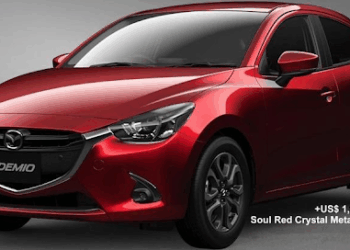In the current economic climate, many Kenyan car buyers are rethinking their vehicle purchasing options. With import taxes rising and global inflation affecting prices, locally used vehicles are becoming an attractive alternative to imported units. But the big question remains — will buying a locally used car actually save you more money in the long run?
In this article, we explore the pros and cons, price comparisons, and hidden factors you need to consider before making that decision.
👉 For more expert tips, car reviews, and auto industry updates, visit Automag Kenya.
The High Cost of Imported Cars in 2025
Imported used cars have long been popular in Kenya, especially from markets like Japan, the UK, and Singapore. However, in 2025, several factors have driven up costs:
- Revised CRSP List (July 2025): The Kenya Revenue Authority’s new CRSP schedule has increased the taxable value of many cars.
- Import Duty and Taxes: Buyers now pay up to 35% import duty, plus 25–35% excise duty, 16% VAT, and other levies.
- Currency Fluctuations: The Kenya shilling’s depreciation has made foreign purchases more expensive.
Additionally, Kenya currently only allows the import of used vehicles that were first registered on or after January 1, 2018. This restricts access to older, cheaper cars, further increasing the base price for imports.
How Much You Can Save With a Local Used Car
With these rising import-related costs, locally used cars are becoming more cost-efficient. Let’s break it down:
- A 2016 Toyota Axio that was once imported at around KSh 1.2M may now cost nearly KSh 1.5M due to updated tax rules and the 2018 import cut-off.
- The same model, bought locally and in good condition, can sell for KSh 950,000 to KSh 1.2M — depending on mileage and service records.
That’s a potential saving of over KSh 250,000, not to mention quicker delivery and no port clearance stress.
To find local used cars like the Toyota Axio, Mazda Demio, or Honda Fit, browse listings at Auto24 Kenya. The platform features verified local stock, with updated prices based on current market trends.
Benefits of Buying a Locally Used Car
Here’s why more Kenyan buyers are opting for second-hand vehicles already in the country:
- No Port Charges: You avoid clearing fees, delays, and surprise demurrage costs.
- What You See is What You Get: Inspect the car before purchase — no relying on overseas photos.
- Immediate Use: Drive away as soon as you seal the deal.
- Service History: Some vehicles come with full maintenance records from previous Kenyan owners.
Discover more tips on evaluating a second-hand vehicle here.
What to Watch Out For
While local used cars offer savings, buyers must remain vigilant:
- Odometer Fraud: Ensure mileage hasn’t been tampered with. Use tools or hire an expert.
- Mechanical Issues: Always take the car for a professional inspection before purchase.
- Ownership Papers: Confirm that the logbook is clean, and check for any hidden loans or encumbrances.
Are Locally Used EVs Worth Considering?
With the rise of electric vehicles in Kenya, a few second-hand EVs are beginning to appear in the local market. Models like the Nissan Leaf and MG ZS EV offer fuel savings and low maintenance.
While initial prices might seem high, you can save significantly on fuel and service costs in the long run. Learn more about Kenya’s EV future in our electric vehicle forecast.
To browse second-hand EVs in Kenya, visit Auto24 Kenya, where newer listings now include electric and hybrid options.
Final Verdict: Should You Buy Local?
If you’re on a budget or want to avoid unpredictable costs at the port, a locally used car may offer better value in 2025. With proper due diligence, you can find a clean, well-maintained unit for far less than an imported equivalent.
👉 Check out verified local listings at Auto24 Kenya.
👉 Stay updated on policy changes and buyer guides by visiting Automag Kenya.




